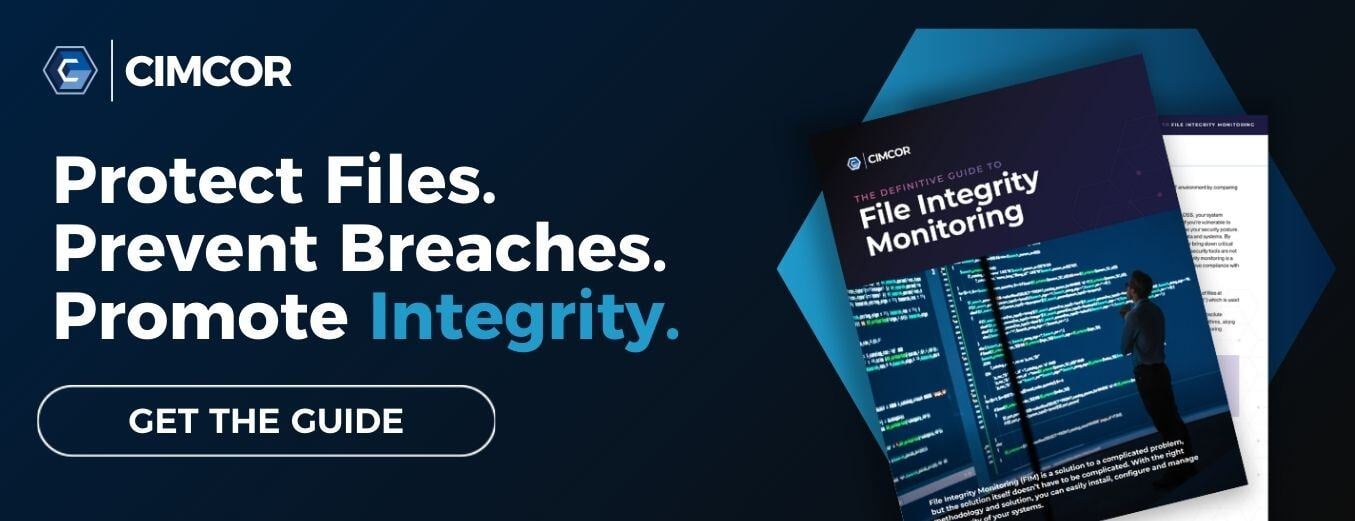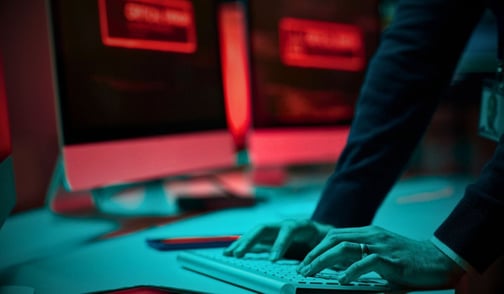Employees are a first-line defense against threats such as zero-day attacks and breaches. It is critical that they are made aware of basic methods that will maintain the company’s digital integrity. Whether your organization is large or small, training your employees can go a long way toward keeping your IT infrastructure secure. Here are five ways that employees can help improve overall IT security.
1. Learn to Identify Phishing Scams
Phishing scams typically appear as emails from legitimate organizations or trusted contacts. These fraudulent messages are designed to deceive recipients into revealing sensitive information or inadvertently installing malicious software.
Organizations should train their employees to carefully examine incoming emails for signs of legitimacy.
Characteristics of valid emails:
- The sender's email address is an exact match to the company's official domain (be wary of similar or hidden variations)
- The message is well-written and free of unusual spellings, characters, or grammatical errors.
- Links and attachments are expected and relevant to the message content; hovering shows legitimate URLs or documents.
- Has no pressure or threats to act with urgency (i.e. fines, account closure, etc.)
- Passes your organization's anti-virus software
It is important to keep company (and personal) information private.
2. Practice Strong Password Hygiene
The best thing for organizations to do is actually set automatic password policies on systems so that passwords have to be secure. Still, training on password security can help employees understand the dangers of weak passwords. If you use (or want to use) weak passwords at work, odds are, you probably use them at home for personal accounts. In 2024, over 5.5 million users still had simple number sequences such as "123456" as passwords, and many users repeat passwords across multiple websites and applications (that makes for some easy guessing!)
Understanding what can happen when weak passwords are used can “hit home” and increase cybersecurity awareness.
The latest draft of NIST's Special Publication 800-63B contains important information on how to create strong passwords. It might surprise you because previous “best practices” are now considered obsolete.
Current best practices include:
- Create memorable but complex passphrases (Example: "CoffeeAt9!LunchAt12?")
- Use different passwords for work and personal accounts
- Never share passwords via email or messaging apps
- Consider using password managers like LastPass or 1Password
- Enable Multi-Factor Authentication (MFA) or use Passkeys when offered
3. Understand BYOD Cybersecurity Policies
Over 80% of organizations have a BYOD policy in place. Does your organization have one?
Most BYOD security policies require employees to:
- Secure network access using a VPN
- Implement Multi-Factor Authentication (MFA)
- Attend employee training on specific company security protocols
- Comply with guidelines to protect sensitive company information
- Follow strong password requirements
- Avoid downloading unauthorized apps and software.
Related Read: The 8 Top BYOD Security Risks (and How to Mitigate Them)
4. Maintain Software Installation and Update Best Practices
Unauthorized software and outdated systems can create major security vulnerabilities in your organization's network.
Keeping your software updated is a front-line defense against security threats. Even one outdated program, application, or operating system update can compromise your entire organization's security.
However, these security measures can be undermined by unauthorized software. Many system threats are disguised as harmless programs, browser extensions, or free versions of paid software. Downloading these unauthorized programs can create backdoors into your organization's network, bypassing the protections that updates provide.
Help protect your workplace by following these software guidelines:
- Install security updates as soon as you're notified by your IT department, applications, and devices (let go of the emotional support tabs—it will be okay, we promise)
- Enable automatic updates when possible
- Report any update errors or suspicious program behavior immediately
- Only install software through your organization's approved channels. If you need additional tools, work with IT to find approved solutions
- Never download unauthorized programs or browser extensions, even if they seem helpful and legitimate
5. Utilize IT Security Training
Organizations often provide IT security training that employees can take to improve cybersecurity from home. Employers should work to develop a continuing conversation about IT security issues and share interesting case studies with a problem/solution approach. For example, what if an employee accidentally downloads malware? What actions should they take immediately?
Non-compliance with IT security policies and procedures can have consequences. Organizations take IT security seriously and implement these policies to help avoid costly cyber incidents, not only in terms of cost but also time.
Thinking that your business could benefit from an added layer of security? Learn more about how File Integrity Monitoring can help secure your infrastructure today.
.png?width=50&height=50&name=Kayla%20%20(1).png)
February 13, 2025




